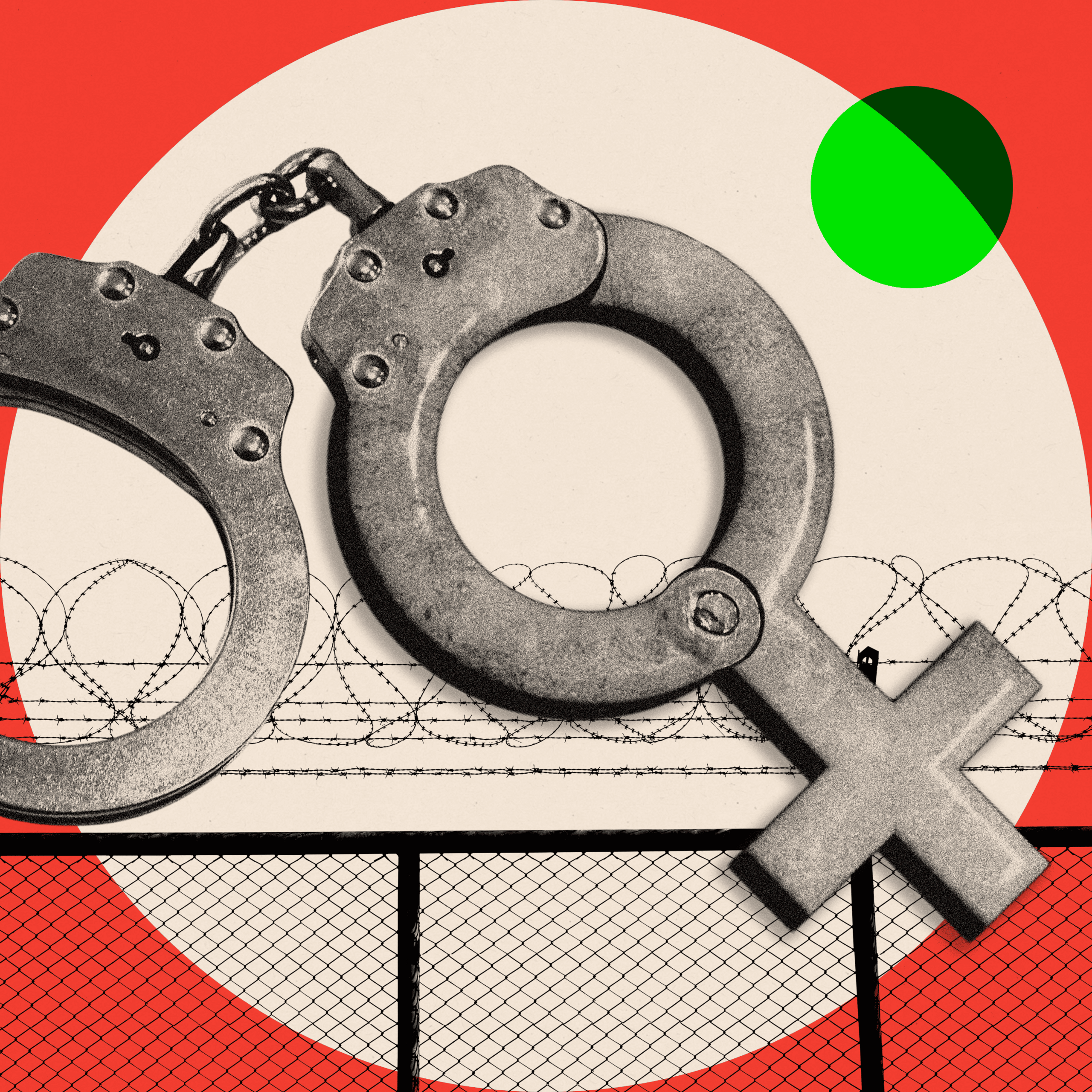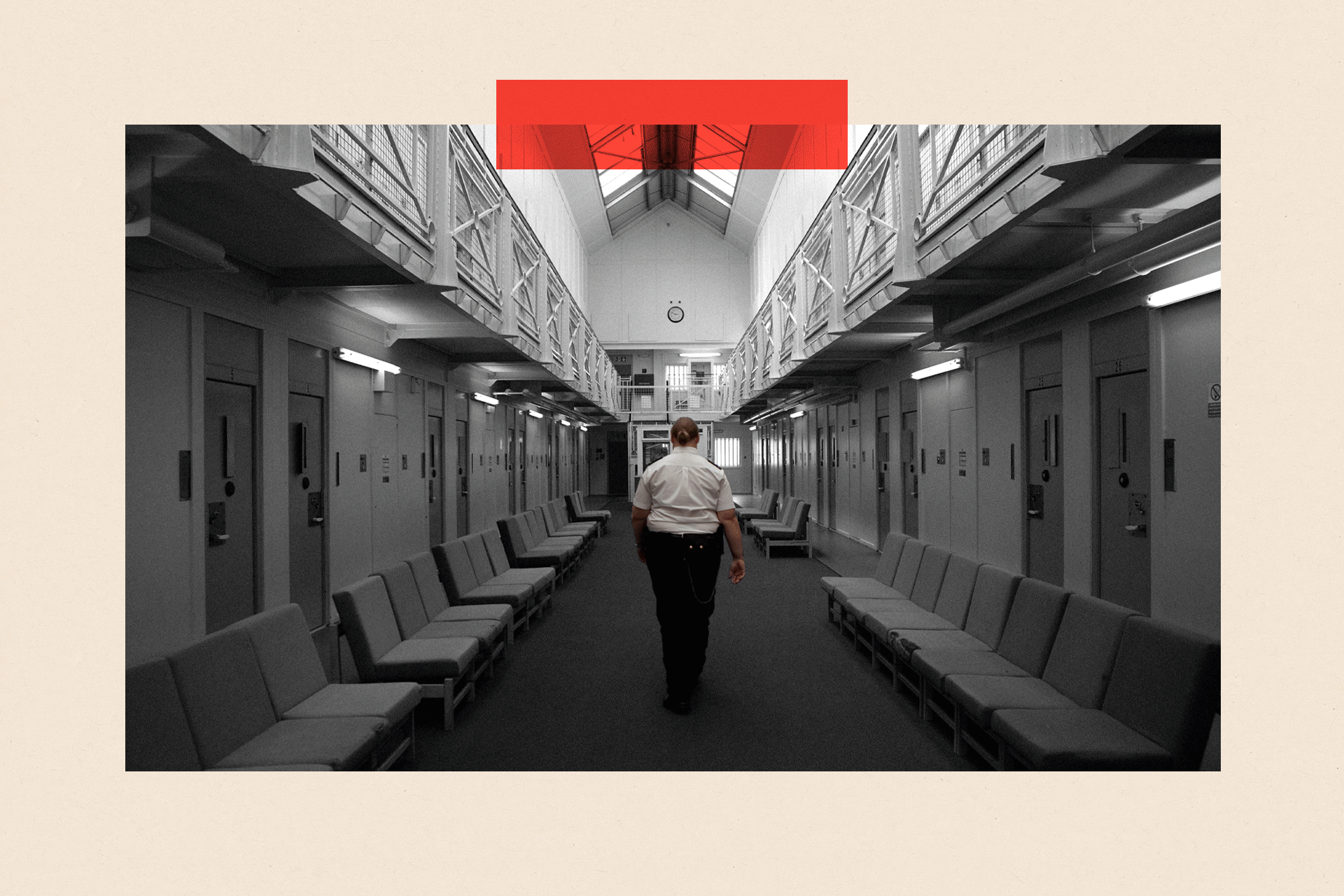
There are more than 3,600 woman prisoners in England and Wales - a number the Ministry of Justice projects will rise to 4,200 by November 2027.
But Justice Secretary Shabana Mahmood believes “prison isn’t working” for women. She told the Labour Party conference that after serving a short custodial sentence, a woman is “significantly more likely” to reoffend than one given a non-custodial sentence.
Meanwhile prisons minister James Timpson has said he sees “lots of very ill women” on visits. This echoes research, external which found 82% of women prisoners reported they had some form of mental health problem, and data pointing to a rising number of self-harm incidents in women’s prisons.
The majority, external of imprisoned women have experienced domestic violence.
So what can be done? Two government-commissioned publications, the Corston Report (2007) and the Ministry of Justice’s Female Offender Strategy (2018) recommended that in some cases, instead of prison sentences, the use of women’s residential centres, which focus on trauma support and where children can sometimes stay, or community sentencing, would be more appropriate.
The new Labour government has announced measures including a Women’s Justice Board, external to reduce imprisonment numbers. Under the Conservatives, a 2021 white paper, external outlined plans for mandatory staff training in women's prisons to reduce self-harm and better support for pregnant women.
InDepth has spoken to people with experience of the criminal justice system to hear how they think it can be reformed for female offenders.

Most women are imprisoned for nonviolent, non-serious offences, and so they are not really a threat to public safety. They would benefit more from community alternatives.
Women with short-term sentences, six months or less, shouldn't be in prison. In that time you're not going to achieve any meaningful change or real engagement with rehabilitation. So it doesn't serve a purposeful function for society or for women.
Over half of women prisoners go on to reoffend. Women are going straight back into the same environment, same circumstances, that they were in before going into prison - such as homelessness, or substance abuse.
It is true that prison can offer structure when a lot of these women live very chaotic lives. There are also some good examples of prisons with programs that specifically deal with trauma. However, women’s centres are a better approach as they are more focused on addressing the causes of offending - for instance, underlying issues such as trauma.
There's always a risk that the government might lean towards populist measures that lock more people up, but I think there is increasing public awareness about the need to do things differently because of the reoffending rates.
Unsurprisingly, the key challenge is funding and investment. There is a growing number of women’s centres but a lack of funding means that there aren’t enough of them.

I was in Eastwood Park Prison from March to July 2022 for perverting the course of justice. I was under the impression that prisons were supposed to be rehabilitative facilities that help nurture people back into society. But that's simply not the case.
During my time in prison, we were locked in our cells for 23 hours a day, with little to no access to education. Prisoners were supposed to have maths and English lessons, but the prison was so under-resourced that prison officers would never open the door.
We’d only have an hour outside our cells, and we would have to choose between having a shower, exercising, meeting other people, or being outdoors. One hour was simply not enough time to get anything meaningful done.
After leaving prison, I realised how broken the system is. A lot of the people going into prison were very young and many had grown up in care. They’ve been dispatched straight from the care system to the criminal justice system. While personal accountability for their choices is essential, I think it’s really important to start discussions on how we can better serve people before they end up in prison.
Preventative measures are important but I want to be clear - I don't agree with abolishing prisons. Violent and dangerous offenders should be removed for the safety of wider society, for the sake of the victims and potentially for their own safety. But what we do to those people in prison needs to change.
Scarlett has been awarded a Churchill Fellowship, external to research adolescent mental health outcomes in Australia and the US.

Some women are violent, sexual or prolific offenders and should be in prison. The purpose of prison is fourfold – to punish, protect the public, deter crime and give the opportunity for rehabilitation.
Just 4% of people in prison are women and they are a very different population to the other 96% - they are less likely to be violent or prolific offenders. We do need more prison spaces, but those places should be filled with violent or prolific men, rather than women who are not.

An alternative to prisons like this one are women's residential centres, which offer trauma support and allow mothers to stay with their children
We should also consider issues which apply to women. For example, pregnancy.
The criminal justice system is in an utterly shambolic state. A proposal for a series of residential women’s centres, which came from the Female Offender Strategy in 2018, has – with a couple of exceptions - barely got off the ground. We have the biggest Crown Court backlog on record. We know what helps reduce reoffending but we systematically fail to do it.
Partly this is funding, but also there is the ineffectiveness of community sentencing, and as part of that, drug rehabilitation, education and employment programs.
Locking up non-violent and non-prolific women is not the only solution. Key to deterring people from committing crime is catching more of them, doing it quicker, and potentially sentencing them to something other than prison if they're not violent or prolific offenders.

There must be a gender-specific approach to criminal justice, as women end up in prison because of things that are gender-specific in society.
If you're only thinking about working with women at the point at which they're sent to prison, you're starting too late. The real solutions are earlier upstream, where change needs to happen.
Women are being sent to prison essentially as a punishment for being poor and falling into debt - they are the shock absorbers of poverty. Survivors of domestic abuse are criminalised.
They often experience horrendous mental health problems. The list just goes on. The system is completely broken.
Labour‘s Women's Justice Board is welcome if it can really do something. In the long term, we want to stop women being criminalised for the discriminatory experiences they have.
Any assumption that you can do rehabilitation or quality therapeutic work in prison is not true - they're not safe or healing environments.
Prisons are terrifying. They completely remove your identity. Several women just in the last two weeks have told us entering prison was like entering a mental asylum from the 1800s - people screaming through the night, people banging their heads on the walls. It really is hellish.
Just because you have a gender lens, it doesn't mean you don't look at men. Having a gender lens means that you understand how disproportionately many women offenders are themselves victims.

Prisons are meant to be about rehabilitation, but now they’ve become purely about punishment. I understand that people want to see those who commit crimes pay the price, but a lot of women that are in prison are most likely victims of serious offences themselves.
There also needs to be special consideration for women that have children and better mental health support for them. You have a lot of women self-harming because of the conditions in prisons.
There are a lot of societal issues that cause people to end up being in prison. People find themselves in poverty and do things that are questionable.
But it's just not the case that everybody who does something awful ends up in prison. Black people are twice as likely to be arrested, remanded and sentenced than their white counterparts. If you're more likely to first face criminal charges and custodial sentences, then you are most likely going to have to deal with the impact of prisons.
When I talk about issues that are happening with women when they're in prison, I'm talking about women overall. But we can't ignore the disparities that black women face when they face criminal charges.

The way we operate the probation system and the wider offender management system is frankly sloppy. We are not disciplined or rigorous enough in our expectations of offenders. These women have committed a crime. There are victims to whom we have a duty of care, and punishment as well as rehabilitation is important.
If we want to be a functioning liberal society, we have to be one that operates with a high level of trust. No matter how petty the crime, we must be strict. Otherwise we risk undermining the wider sense of trust.
However, we need to think carefully about our approach to penal policy because we still have a early 20th Century, semi-Victorian attitude, whereas behavioural science and research on offending and rehabilitation has moved on quite significantly.
It's also important to acknowledge the differences between male and female offenders. Men are generally more prone to violence and differences in general behavioural traits should be reflected in our approach.
While I believe there needs to be a penal element to the justice system, there are smarter ways of dealing with somebody than just shoving them in prison.
For example, there are a proportion of women who are in prison because they are perpetrating acquisitive crime to feed alcohol addiction. We can use sobriety tagging, which has been remarkably successful, to keep people sober and so not offending and out of prison, combined with unpaid work in the community as a better outcome for victims and perpetrators alike.

If the public knew who's in prison, what it costs, what that's doing in the long run, they would want change. Prison is not succeeding in bringing around transformational change through rehabilitative work.
Most women in prison are victims as well as offenders and in prison because of what they've experienced in their relationships.
Some need to be dealt with securely, but we need to address issues in the community in order to stop reoffending, as most are there for short sentences, and go back through the revolving door.
I never want to say “let's just let women off”, but prison only sets up more layers of trauma. That there are still pregnant women in prison is unacceptable.
There are alternatives, such as women's centres and community sentences. Problem-solving courts are being trialled, looking at how to reduce reoffending - we need more of that approach.
So many reports just end up on ministers' shelves. Even if you don't care about the women, you probably do care about taxpayer money. What we're doing makes no financial sense.
If we could get this right for women, we could bring in some of the same principles to the men's estate.
Top photo credit: Getty
BBC InDepth is the new home on the website and app for the best analysis and expertise from our top journalists. Under a distinctive new brand, we’ll bring you fresh perspectives that challenge assumptions, and deep reporting on the biggest issues to help you make sense of a complex world. And we’ll be showcasing thought-provoking content from across BBC Sounds and iPlayer too. We’re starting small but thinking big, and we want to know what you think - you can send us your feedback by clicking on the button below.
Get in touch
InDepth is the home for the best analysis from across BBC News. Tell us what you think.
